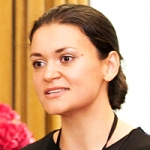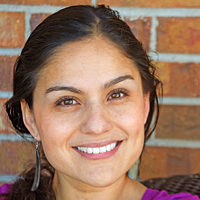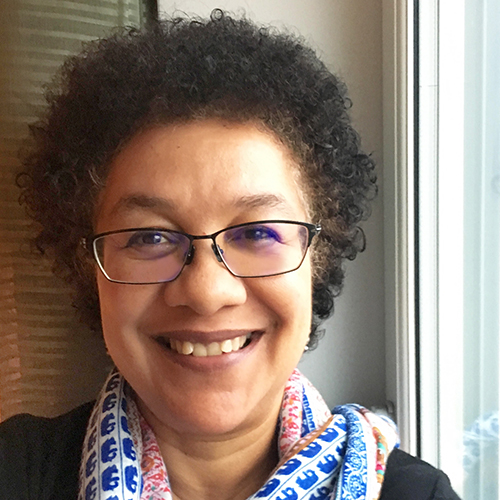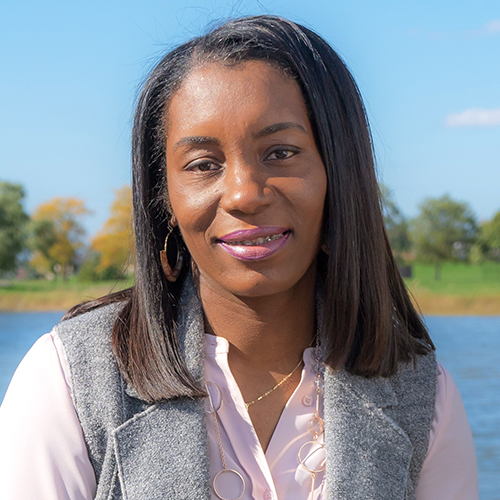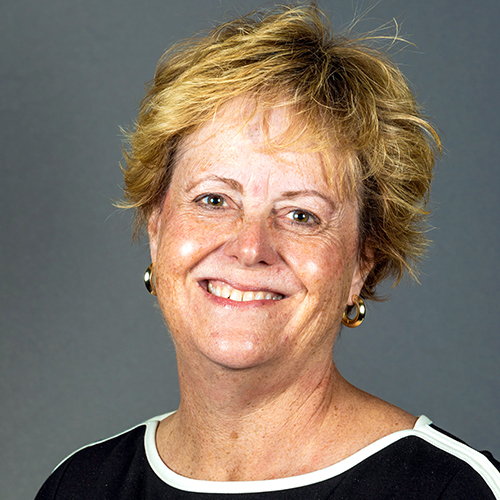 IBCLC Detailed Content Outline: Clinical Skills Focused CERPs - Section VII
IBCLC Detailed Content Outline: Clinical Skills Focused CERPs - Section VII
Access CERPs on Clinical Skills for the IBCLC Detailed Content Outline recertification requirements. Enjoy convenient on-demand viewing of the latest Clinical Skills focused IBCLC CERPs at your own pace.
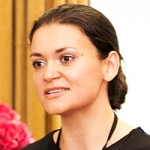

Mihaela Nita- MD, IBCLC, medical doctor (since 2007), specialized in pediatrics and International Board Certified Lactation Consultant (since 2011), worked mainly to develop the profession of IBCLC in Romania. Organizer of the first IBCLC Day in Romania, is the co-founder and president of Romanian Lactation Consultant Association, member of ELACTA. Active in the field of lactation, organizing conferences, events, support groups, 90 hours training courses, CERPs accredited courses, fundraising events. On behalf of the Romanian Lactation Consultant Association, Mihaela Nita started the first volunteer work in the country, in the NICU of Marie Curie Emergency Children Hospital in Bucharest that led to the idea of implementing a human milk bank. Mihaela is passionate about training, advocating for the IBCLCs role and making a change for mothers, society and medical system in the field of lactation.
Romania is one of the European countries with a very low breastfeeding rate. The emergence of IBCLCs in the past 2 decades helped in improving mothers access to lactation professionals. Starting from 2013 with the first celebration of IBCLC Day, conferences and courses, the awareness of a new profession raise.
Although in Europe there are more than 200 human milk banks, Romania does not have one.
The limitations in the process of implementing a human milk bank in the NICU, the gap of legislation, the support of the civic society and 2 cases are discussed in the presentation.

View Details / Enroll


Paulina is the mother of three multicultural Latino children and Project Director for Lifespan Local. Paulina earned her BS in Psychology from the Pennsylvania State University, a MS in Organizational leadership from the University of Denver and is completing her PhD in Health and Behavioral Sciences at the University of Colorado - Denver. Paulina has over 18 years of experience working with families with young children. As a Maternal Child Health specialist for Jefferson County Public Health, she developed a NICU follow-up home visitation program and the pediatric emergency preparedness plan, co-founded and coordinated the Conectando Network (former Adelante Jeffco), established community navigation and lactation support groups focused on the Latino Spanish speaking community, and lead other initiatives to support leadership and partnerships among communities and organizations. During the COVID-19 pandemic, she managed the new program Whole Community Inclusion to ensure the pandemic response and recovery implementation included health equity practices that recognize the needs and the strengths of priority populations in the county. Her areas of current work include promoting perinatal and infant mental health along the continuum of care; building community capacity to navigate health and education systems; facilitating organizational change to embrace linguistic and culturally responsive practices; and establishing community-placed participatory programs to strengthen communities. She likes to be with people, learn from and with others, and connect passions for meaningful work.
Topic: From the NICU to the home: mother’s experiences - [View Abstract]
Topic: Leadership Skills in Lactation: Make Extraordinary Things Happen - [View Abstract]
Topic: Liderazgo en Lactancia - Para Alcanzar Metas Extraordinarias - [View Abstract]
Topic: Nursing A Preemie, Perspectives For Lactation Supporters and Professionals - [View Abstract]
Lactation consultants would benefit from expanding their understanding of the impact of the NICU stay on the family; moreover, they would benefit from identifying the essential role they could play in assisting families to accomplish a positive, healthy, and smooth transition home.
Despite continuing efforts to reduce prematurely worldwide, a significant number of infants are born too early or in a fragile medical condition. Many of these infants experience a lengthy stay at the NICU. Lactation support varies across facilities, but families, especially mothers, develop strong connections with their lactation consultant. As one of their most consistent providers in the NICU, the lactation consultant has the opportunity to recognize families’ need for continuing support after discharge and strategies to protect the breastfeeding relationship, attachment, and mental health in the long term.

View Details / Enroll

Full-Term Breastfeeding/Chestfeeding: Benefits, Considerations, and Ways to Offer Support

Joy MacTavish, MA, IBCLC, RLC is an International Board Certified Lactation Consultant and certified Holistic Sleep Coach focusing on the intersections of infant feeding, sleep, and family well-being. Through her business, Sound Beginnings, she provides compassionate and evidence-based support to families in the greater Seattle area, and virtually everywhere else. She entered the perinatal field in 2007 as birth and postpartum doula, and childbirth and parenting educator. Joy holds a Master of Arts in Cultural Studies, graduate certificate in Gender, Women and Sexuality Studies, and two Bachelors degrees from the University of Washington. She enjoys combining her academic background, analytical skills, and passion for social justice into her personal and professional endeavors. Joy serves as an Advisory Committee Member and guest speaker for the GOLD Lactation Academy. When not working or learning, she can be found homeschooling, building LEGO with her children, or dreaming up her next big adventure.
Topic: Full-Term Breastfeeding/Chestfeeding: Benefits, Considerations, and Ways to Offer Support - [View Abstract]
Topic: Mindful Breastfeeding: How Lactation Professionals Can Support Calm and Connection - [View Abstract]
Topic: Sending Reports: What’s in it for IBCLCs? - [View Abstract]
Topic: Supporting Clients Facing Fertility Treatment - [View Abstract]
Topic: The Intersection Between Lactation, Sleep, and Family Well-Being - [View Abstract]
Topic: Weaning: Supporting Families Stopping Lactation and/or Ending Their Breastfeeding/Chestfeeding Relationship - [View Abstract]
"Full-term," "natural term," or "extended" are just a few of the phrased that are often used when describing breastfeeding/chestfeeding relationships that last longer than the cultural norm for a given community or geographic region. We know that breastfeeding/chestfeeding past infancy is full of benefits for both the parent and the child. Yet many families who plan for (or unintentionally find themselves in) a breastfeeding/chestfeeding relationship into toddlerhood or beyond face critiques, emotions, logistics, and a need for support that is unique to this experience. This presentation will cover considerations of full-term nursing including an overview of developmental stages for a breastfeeding/chestfeeding child, changes in milk composition, and psychobiological benefits to both the child and parent. We will also explore ways that lactation supporters and professionals may offer support, encouragement, and guidance to these families. Whether you have been supporting full-term nursing for years, or this is an area that you'd like to learn more about, you're sure to leave this presentation with insights and strategies that you can use to support full-term nursing families.

View Details / Enroll
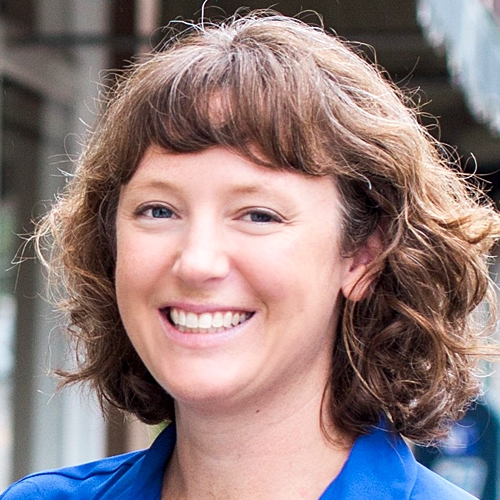
Funny Tasting Milk: The Biochemistry and Clinical Applications of Human Milk Oxidation vs. High Lipase Action

After studying biology at Meredith College in North Carolina, Nicola Singletary, PhD, MAT, IBCLC spent the early part of her career sharing her love of science with middle school students. It was not until after the birth of her first child in 2007 and the challenges she faced breastfeeding that she became interested in pursuing a career in breastfeeding support. She enrolled at North Carolina State University to study human nutrition and completed the Mary Rose Tully Training Initiative through the Carolina Global Breastfeeding Institute at UNC Chapel Hill in 2012. In the fall of 2013, she opened Harmony Lactation, LLC with the goal of helping mothers meet their breastfeeding goals. She recently completed her PhD in Nutrition and is a postdoctoral researcher at NCSU; her research focuses on breastfeeding education. She is also co-owner of Next Level Lactation, an educational and consulting company for lactation professionals.
Topic: Funny Tasting Milk: The Biochemistry and Clinical Applications of Human Milk Oxidation vs. High Lipase Action - [View Abstract]
Some breastfeeding parents find that their stored milk tastes sour or rancid, and sometimes this milk is refused by their baby. These flavors and odors are often described as metallic, fishy, rancid, sweaty or soapy. But what exactly causes these ‘off’ flavors and what can be done about milk that is refused? Is the solution always to scald milk? Milk with high lipase action leads to milk with increased levels of free fatty acids during storage that can produce rancid and sweaty flavors. Enzymes such as lipase can be inactivated by heating prior to milk storage. Milk with high levels of polyunsaturated fatty acids is susceptible to fat oxidation during storage leading to fishy and metallic flavors. Storage recommendations to reduce oxidation of fatty acids in milk include using short storage times, thawing at cold temperatures, and avoiding light exposure during storage. Case studies of both oxidized milk and high lipase action will be presented along with possible solutions.

View Details / Enroll
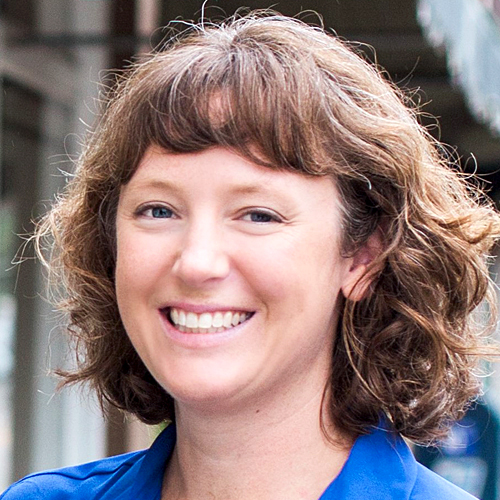
View Details / Enroll
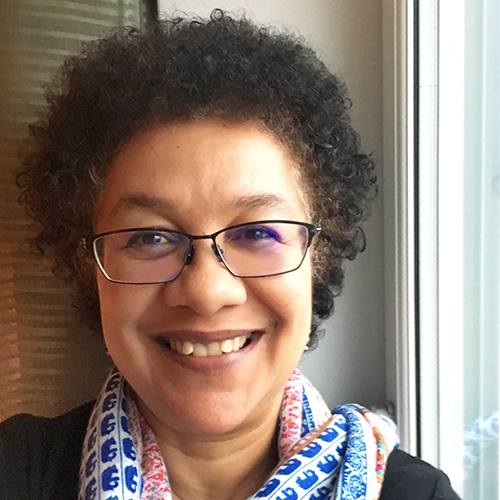
Global Perspectives on the Warm Chain of Support for Breastfeeding

Dr. Amal Omer-Salim is the Executive Director of the World Alliance for Breastfeeding Action (WABA). She is a nutritionist with a Ph.D. from Uppsala University, Sweden. Her areas of expertise are nutrition, breastfeeding, international health, gender, programme planning, research, and advocacy, with a special focus on Africa and Asia.
Global trends in breastfeeding rates only show modest increases between 2000 and 2015. Currently, about 40% of babies below 6 months are exclusively breastfed and several barriers on the structural, setting, and individual levels exist. Continuous support for mothers across the 1000 days from conception has been shown to be effective in increasing the duration and exclusivity of breastfeeding. WABA’s Warm Chain campaign places the mother-baby dyad at the core and strives to link different actors by coordinating efforts at all levels to provide a continuum of care during the first 1000 days. The warm chain needs to be protected, promoted, and supported. Protection includes implementation and monitoring of the International Code of Marketing of Breastmilk Substitutes as well as coordination to ensure that all the linkages in the chain are working well. Promotion entails providing information about the roles and responsibilities of each actor along the timeline. Support includes increasing knowledge, skills, and competencies of multi-professional teams in order to provide optimal support for breastfeeding. Achieving a warm chain of support for breastfeeding will help increase breastfeeding rates, thus ensuring improved survival, health, and well being. The short and long-term positive effects impact individuals, societies, and the planet.

View Details / Enroll
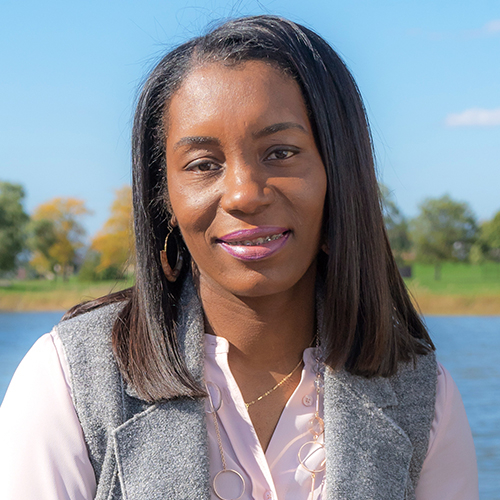

Stacy Davis is the Health Equity and Community Partnerships Manager for the National Women, Infant and Children (WIC) Association. Inspired by her personal and professional experiences, Stacy has focused her efforts on addressing health equities in Maternal Child Health, locally, nationally and internationally, especially as it pertains to black and brown families.
As the former executive director of the National Association of Professional and Peer Lactation Supporters of Color, Stacy established the organization as a brand and leader in the field- addressing racial inequity in lactation support and education, acting as expert panelist and collaborator with other leading organizations, and holding privileged organizations accountable and responsible for the health and wellbeing of communities of color. Additionally, she participated in the growth and expansion of equitable access to Pathway 2 lactation training programs at Historically Black Colleges and Universities, such as Johnson C. Smith and North Carolina A&T Universities. She co-developed and hosted a unique event of its kind- The Amazing R.A.C.E.- a safe space retreat for Maternal Child Health professionals and supporters.
Stacy is a graduate of Western Michigan University where she obtained her master’s degree in Public Health. She has received numerous honors including, but not limited a member of the Center for Social Inclusion’s First Food Racial Equity Cohort, IBCLE’s Spotlight, and the AHEAD in WIC Health Equity Champion. Stacy Davis is a United States Lactation Consultant Association Board of Director.
New parents do not anticipate a challenging journey when it comes breast-/chest-feeding. When things do not go as planned, parents are therefore often consumed by fear and uncertainty and look to professionals for support. Being the person guiding the steps of a new, lactating parent creates a challenge. How do you design a care plan which address the concerns of the parent(s) but also allows the parent(s) to act as a member of the team and the expert on what is best for them and their family in their current life circumstances? How do you foster self-efficacy, and self-empowerment in your clients to ensure that your plan of care is feasible and within the capacity of the parent(s)? Learn more about the importance of meeting parents where they are at to create a care plan which is mutual, feasible, and sustainable. This presentation will be a 60-minute Q&A session so bring your questions about how to approach communication and counselling to create a plan of care that really works for your clients and helps them to meet or exceed their infant feeding goals.
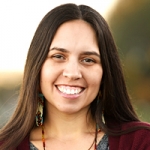
Historical Trauma, Racism and White Privilege: The Barriers to Breastfeeding Success

Camie Jae Goldhammer, MSW, LICSW, IBCLC, (Sisseton-Wahpeton) is a Clinical Social Worker and Lactation Consultant. Camie received her Master of Social Work degree from the University of Washington in 2006, specializing in Maternal Mood Disorders and the affects of complex/Intergenerational trauma on attachment, bonding and the parenting practices of Native families.
Camie is the founder and chair of the Native American Breastfeeding Coalition of Washington. She is also a founding mother and President-Elect of the National Association of Professional and Peer Lactation Supporters of Color. In 2013 she became Washington state's first Native American IBCLC. Camie is a consultant with CHEER and is also a part of the Center for Social Inclusion’s First Food Racial Equity Cohort. Recently she worked as a Campaign Director with MomsRising working to bring paid family and medical leave to Washington State which was signed into law in July 2017. She is now a member of the MomsRising breastfeeding team. She is a National leader on topics of racial equity and first food justice and recently launched the Indigenous Breastfeeding Counselor training.
Topic: Historical Trauma, Racism and White Privilege: The Barriers to Breastfeeding Success - [View Abstract]
Too often when discussing barriers to breastfeeding there tends to be a focus on education, poverty, and familial support. However, when we truly look at the causes of health disparities and inequities it is racism and discrimination that are at fault. For many of us, this can be a difficult realization and conversation to have. In this session, Ms. Goldhammer will discuss how Communities of Color are impacted by intergenerational trauma specifically when it comes to attachment and bonding as well as the role that racism and white privilege play in today’s modern day field of lactation. She will conclude with ways in which we can create meaningful impact and further advance racial equity in our field and most importantly in the communities we serve.

View Details / Enroll
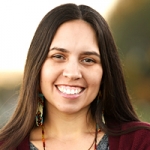
View Details / Enroll

How B.E.S.T. (Basic Evaluation of Structural Tension) Relates to Breast©

Judy Terwilliger is a Clinical RN Therapist with Pediatric experience for over 30 years. As lead therapist, researcher and educator in her proprietary form of functional mobility therapy (Functional Bowen™), she works with allied health care providers in the resolve of hidden structural barrier challenges for infants and children. Her collaborative, integrative team care approach sees many successes. She is committed to equipping families with the tools necessary in support of breastfeeding and enabling parents to participate in the resolve of their children’s structural challenges. She is a member of the National Society of Pediatric Nurses and was a nominee in the 2013 Clinical Excellence in Practice Award. She has been a speaker at the Northern California Placer County Breastfeeding Coalition, Imperial Valley Breastfeeding Summit and presented at the 2016 California Breastfeeding Coalition. Her professional memberships include: ABM Network, International Pediatric Integrative Medicine Network, IATP, and Breastfeeding USA. Judy is a licensed continuing education provider for the National Certification Board for Therapeutic Massage & Bodywork, California Board of Registered Nurses, The California Physical Therapy Association, and the International Board of Lactation Consultant Examiners.
This lecture/course is intended to familiarize the medical and allied health community in the recognition of the often-overlooked muscle-related structural barriers to breastfeeding. It provides a discussion of clues to the predisposing factors of these barriers and explores their affect on infant "functional mobility" as it relates to the achievement of successful breastfeeding. It is intended to improve the clinician’s assessment skills as they work with the mother/infant dyad in resolving breastfeeding difficulties/dysfunctions by development of insight into these often hidden and profoundly destructive structural manifestations. Recognition of these barriers with an emphasis on self-help techniques and when/who to refer parents/caregivers to for help, together with how to best meet their teaching/training needs across cultural barriers, is discussed. The ultimate purpose is the achievement of insight to improve the clinician’s evaluation process, better enabling them to promote, enhance and even save the breastfeeding experience of the families served.

View Details / Enroll

View Details / Enroll
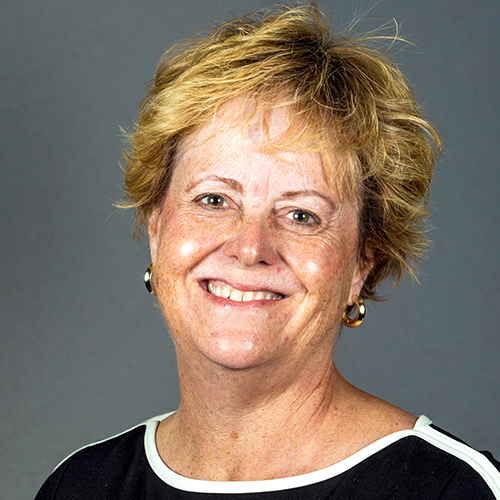

Gail A. Bagwell, DNP, APRN, CNS works at Nationwide Children's Hospital as the CNS of Perinatal Outreach and clinical instructor of practice at the Ohio State University College of Nursing. In her role she works with the healthcare providers caring for neonates and provides education to healthcare providers on the well-newborn as well as care of the sick and premature newborn and serves as a resource on neonatal and quality improvement initiatives. Gail is a member of the National Association of Neonatal Nurses (NANN) and currently the Immediate Past President of the organization. She is also a member of the Central Ohio Association of Neonatal Nurses, American Nurses Association, Ohio Nurse’s Association, Association of Women’s Health and Neonatal Nursing, Academy of Neonatal Nursing, National Association of Clinical Nurse Specialists, Sigma Theta Tau and a Fellow in the American Academy of Nursing. Gail's interests are neonatal abstinence syndrome, breastfeeding, safe sleep, newborn resuscitation and stabilization and parent transition. Gail is a published author of book chapters in all six editions of the Kenner’s ""Comprehensive Neonatal Care"" textbook, the Encyclopedia of Child and Adolescent Development, Neonatal Nursing Care Handbook, editor of the NANN Guideline for Newborn Safe Sleep and multiple journal articles.
Sleep related deaths are the number one cause of infant deaths in the United States, with neonates that have been in a NICU being at a higher risk. In order to combat this problem, the American Academy of Pediatrics (AAP) in the early 1990's began publishing recommendations on how to prevent sleep related deaths in healthy term infants. This effort has led to a decrease in infant sleep related deaths, but confusion remains on when a premature or convalescing neonate be transitioned to a safe sleep environment in the NICU. This presentation will review the different types of sleep related deaths in infants, most current theory of cause of SIDS, review the myths of safe sleep and give guidance to the NICU nurse on how to implement safe sleep in their unit.
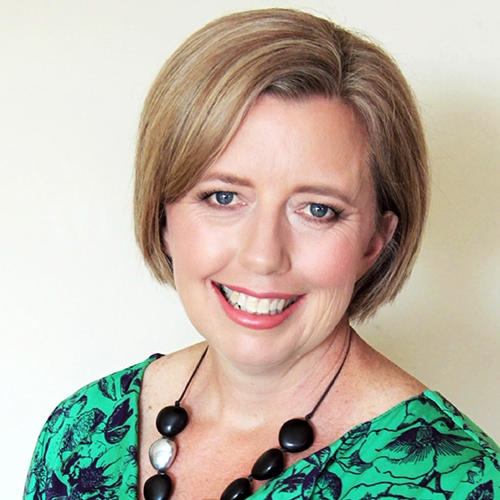
Importance of Peer Counselling and the Impact of the Pandemic on Breastfeeding Dyads in Australia

Naomi Hull is a Registered Nurse, an International Board-Certified Lactation Consultant (IBCLC) and has a Master of Public Health (Nutrition).
Naomi is mum to two teenage young adults, a Rhodesian Ridgeback and five chickens. Since 2006 Naomi has been a volunteer Breastfeeding Counsellor (Cert IV Breastfeeding Education) with the Australian Breastfeeding Association, and she qualified as an IBCLC in 2010 and has worked in a small Private Practice in Brisbane. While completing her MPH at the University of Queensland (UQ) she focused her dissertation on a qualitative review of stakeholder’s perceptions of the implementation of the Australian National Breastfeeding Strategy (2010-2015).
Since then she has gone on to lead and coordinate a national team in the assessment of Australian breastfeeding policies and programs using the World Breastfeeding Trends Initiative (WBTi) Assessment Tool.
Naomi is the Senior Manager for Breastfeeding Information and Research at the Australian Breastfeeding Association, where she is responsible for the provision of up to date, evidence-based information for the general community and health professionals.
Peer counselling has a positive impact on duration of breastfeeding and is quite different to care provided in a health facility. The Australian Breastfeeding Association is a volunteer organisation that provides peer counselling, support and information to mothers and their families face to face but has always provided support via the telephone (National Breastfeeding Helpline), and also an online platform (LiveChat).
During COVID-19 isolation period in Australia, ABA volunteers reported anecdotal evidence of increased calls and a noticeable difference in the number of mothers calling for support to relactate or increase their supply, ABA decided to commence an in-house voluntary survey based on volunteer’s interactions with mothers on the topic of COVID-19.
This presentation will discuss discuss the features of peer counselling and how it works so well with breastfeeding support and the results of this in-house survey. The results provide insight into the impact on mothers, their main concerns, and insight around their impact on desire to breastfeed. The results also evaluate the experiences of peer support counsellors and their feelings about their volunteer role during this time.

View Details / Enroll
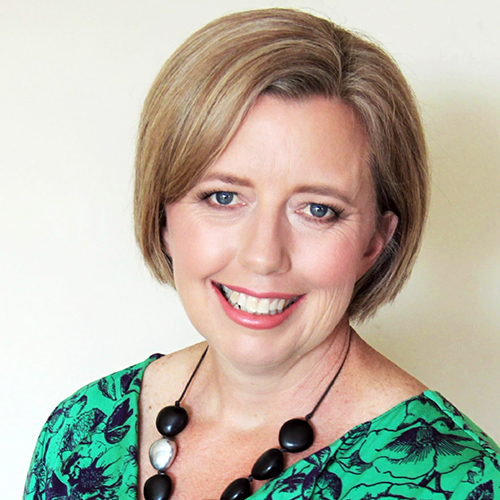
View Details / Enroll



